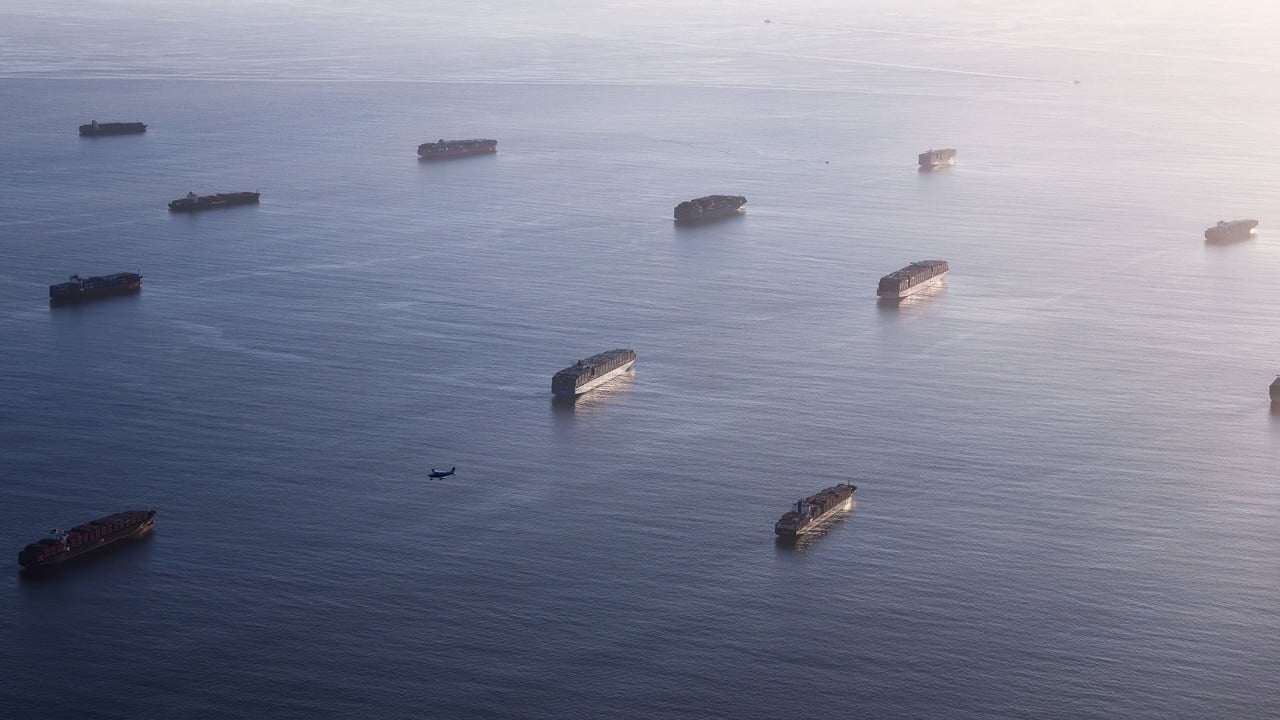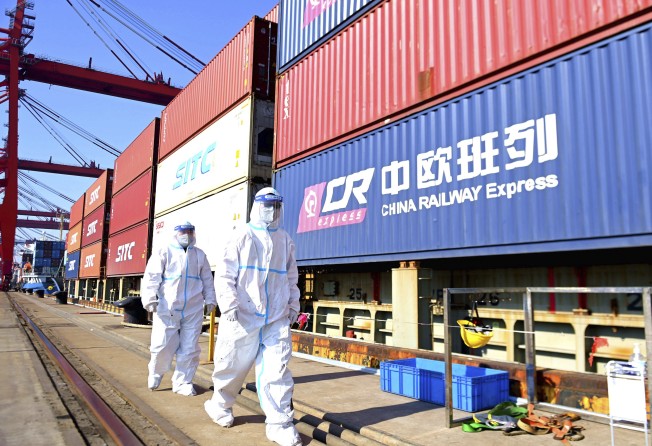
01:30
Global supply chain crisis bites in US cities as store shelves empty with rising demand

China should treat rising foreign concern over subsidies and the prominence of state-owned enterprises (SOEs) in the economy with a more rational, open and confident attitude, the nation’s ambassador to the World Trade Organization (WTO) said on Wednesday.
The world’s second largest economy needs to take part in creating new international trade rules, while also strengthening domestic reforms, Li Chenggang told a seminar organised by the University of International Business and Economics and China Internet Information Centre.
“Unilateralism and trade protectionism, driven by some major economies, have risen significantly. Coupled with the pandemic shocks, they led to more involution and restrictions,” he said via video link.
“[The major economies] have higher requirements and expectations on China. Such foreign concerns are likely to last for a long period.”
His comments come as China, which marks the 20th anniversary of its entry to the WTO this weekend, grapples with fresh challenges from developed countries, which set post-World War II international economic and trade rules.
The country fought a tariff war with the US in 2018-19 and trade tensions with Washington’s allies, such as Australia, remain high. China also faces technological containment from Western countries and the threat of economic decoupling, given conflict over alleged human rights abuses in Xinjiang, Hong Kong’s national security law and Taiwan.
A notable area of China-US trade tension concerns the WTO.
The WTO dispute settlement mechanism has been paralysed for almost two years after former US president Donald Trump blocked the reappointment of judges in 2018. The Biden administration has since pursued the formation of trade blocs with allies over the multilateral trade system.
On Monday, WTO deputy director general Angela Ellard said that “WTO rules, whether they are new or old, have only a limited usefulness if they can’t be enforced.”
She added that, although the dispute settlement system is still operating and continues to be used, resolving the current stalemate is “existential” for members.
China has done well in fulfilling WTO obligations and promises over the past two decades, Li said. “In such an area, we are an excellent student,” he said.
Beijing has tried to uphold globalisation and promised institutional opening, after seeing the results of the country’s accession to the WTO in 2001, which proved instrumental to its subsequent economic take-off, he said.
China’s share of the global economy rose to about 18 per cent this year from 3.2 per cent in 2001.
Li attributed Western countries’ disagreement with China’s economic model to trade protectionism and unilateralism.
“Particularly, since Trump was sworn into the office [in 2017], China and the US have had more and more economic and trade disputes.”
But he added many requests from the West were “beyond the [WTO] rules”.
Washington and its allies have long criticised China’s unfair trade practices, including its status as a market economy and developing country.
“China has continued to embrace a state-led, non-market and mercantilist approach to the economy and trade, despite WTO members’ expectations,” the Office of the US Trade Representative wrote in its annual report in January.
Some countries have also criticised China’s lack of transparency and taken issue with the prominent role of SOEs.
“Many members highlighted the importance of SOEs in China’s economy and expressed concerns about implicit support to SOEs and distortions created by them,” the China trade policy review conducted by the WTO said in October.
“In this context, members recalled China’s accession commitments and urged it to speed up reforms and fully embrace market-oriented policies.”
Beijing and Washington are poised for new rounds of trade negotiations after a virtual meeting between President Xi Jinping and US President Joe Biden last month.
Issues like industrial subsidies and SOEs are likely to be discussed in future talks.
Li called for further domestic reforms to help negotiations at multilateral organisations.
“Some of issues can’t be avoided, such as SOEs. It will be tough once negotiations over such topics start,” he said. “We must do our homework well.”
China should have candid discussions with other countries about new issues like e-commerce and intellectual property rights to promote mutual understanding, he said.
“Our confidence lies in our institutional advantage, sound industrial system and hard work of Chinese people,” Li said. “We should take an open attitude to seek broader interests in the multilateral platforms.”
China remains the world’s top exporter given its successful pandemic control and manufacturing capability, with January-November exports up 31.1 per cent year-on-year to US$3 trillion.